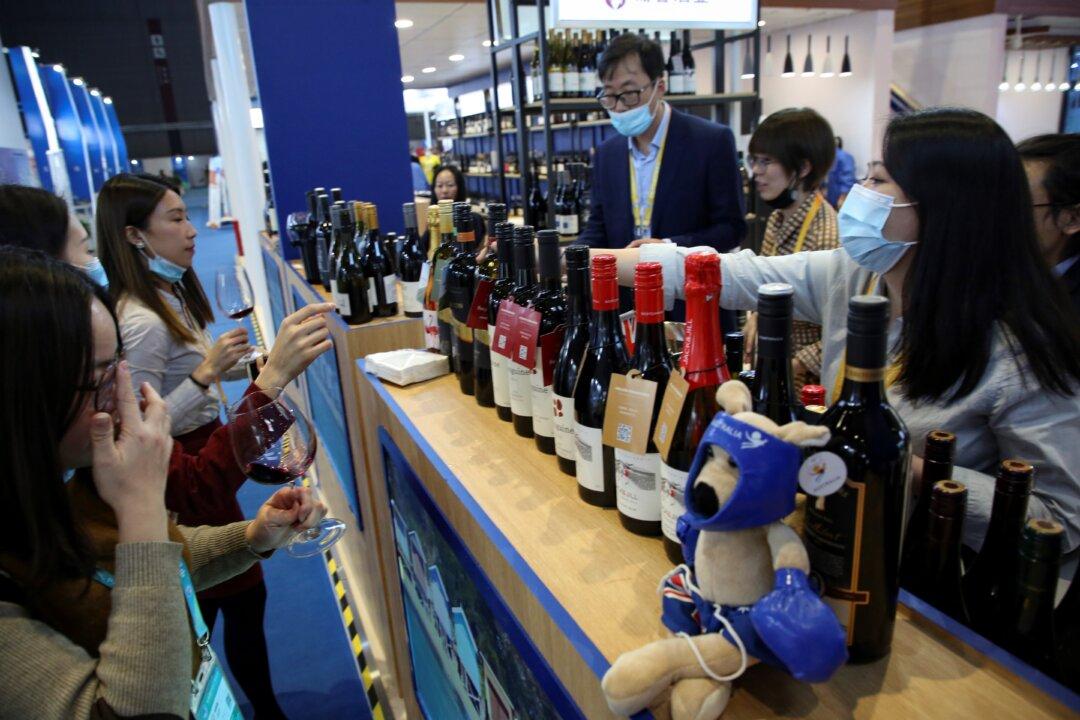Beijing has abolished heavy tariffs against Australian wine, a week after Chinese Foreign Minister Wang Yi visited Australia.
China Drops Heavy Tariffs Against Australian Winemakers
‘The re-entry of Australian bottled wine into the Chinese market will benefit both Australian producers and Chinese consumers.’

People taste red wine from Australia at the Food and Agricultural Products exhibition in Shanghai, China on Nov. 5, 2020. STR/AFP via Getty Images
|Updated:




